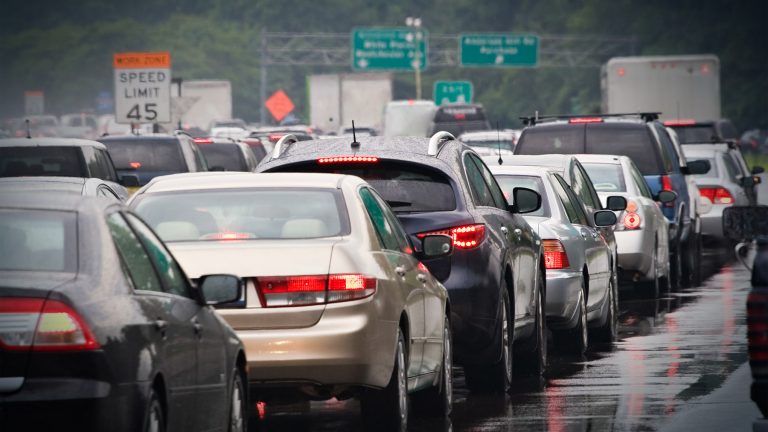
And the Public Says — “Make Congestion Reduction Region’s #1 Focus”
When asked* —
“Which of the following is the number one transportation priority our region needs to address?”
Twice as many people (47%) say “reduce congestion and delay” than any other answer (Maintenance 24%), more travel options (17%)or safety (8%).
To see the entire Greater Washington Regional Survey results click here.
Given that our region has the nation’s most congested transportation network this answer may not be surprising. And in 2012 the Virginia General Assembly passed HB 599 declaring that highway funding in Northern Virginia should “give priority to projects that most effectively reduce congestion in the most congested corridors and intersections.”
Yet, in selecting/prioritizing transportation investments, area officials continue to resist giving congestion/delay reduction the weight and attention it merits.
The Northern Virginia Transportation Authority’s original project scoring process awarded only 35 points (out of 100) to congestion reduction. The same is true of Virginia’s HB 2 original scoring process. Both have since increased congestion’s score to 45, but the fact remains that the combined scores of other criteria (accessibility, connectivity, safety, envirnoment, land use, bike/pedestrian, VMT reduction, operations etc.) total more than congestion/delay reduction and can mask a project’s true congestion/delay reduction benefit.
And the National Capital Transportation Planning Board devotes far more time to promoting transportation “options” than reducing congestion, despite it’s own research showing that implementation of its current long range means future congestion levels and delays only get worse.
In the real world, transportation projects that do the most to reduce congestion and delays most likely also do the most to improve accessibility, connectivity, safety, air quality and land use.
*This question was asked as part of a telephone survey of 800 randomly selected adults in the Greater Washington Region. The Survey was conducted by OpinionWorks Public Relations of Annapolis, Maryland and included land line and cellphone users. Results have a maximum potential sampling error of ±3.5% at the 95% confidence level
It’s Time to Listen to the People and Treat Congestion as the Serious Problem It Is